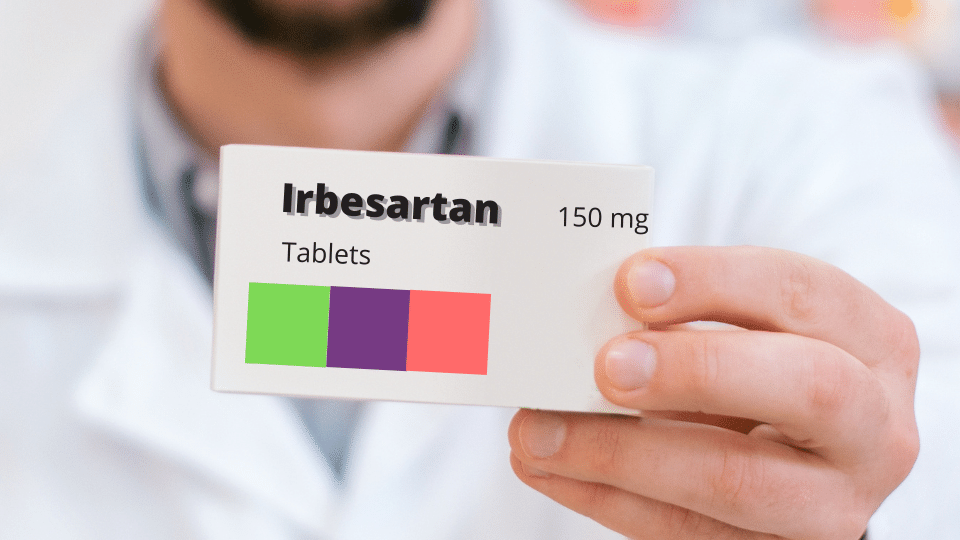Irbesartan(Avapro) is an antihypertensive agent belongs to a class of medicine called Angiotensin II receptor antagonist. It is used alone or in combination with other drugs to treat high blood pressure. It is also used in the treatment of kidney disease in patients with type 2 diabetes, who have high blood pressure and impaired kidney function.
Irbesartan comes as the brand name Aprovel, and it is available as oral tablets only.
This drug is also available in combination with hydrochlorothiazide (a diuretic) and sold under the brand name CoAprovel.
Common Side effects of irbesartan are usually transient. The most common side effects of irbesartan include:
- Musculoskeletal pain
- Headache
- Fatigue
- Nausea
- Flushing
These symptoms are usually mild and will vanish within a few days, but if they were severe then you need to talk to your doctor.
These side effects occur less commonly:
- Upper respiratory tract infection
- Fatigue
- Diarrhea
- Cough
- Chest pain
- Hyperkalemia (High potassium levels)
- Hypotension (Low blood pressure)
- Nephrotoxicity
- Tachycardia (fast heart beat)
On rare occasions, you might have:
- Heartburn
- Rash
- Angioedema (swelling of face, lips or any part of the body)
- Hepatotoxicity (liver damage due to drugs)
- Severe headache
- Muscle or joint pains
These side effects are dangerous. If you experience any of these side effects, you should try to seek medical attention immediately.
- Angioedema (swelling of the face, eyes, lips, tongue, or throat)
- Excessive liquid loss (vomiting, diarrhea, or excessive perspiration)
- Hyperkalemia (body weakness, uneven heartbeat, tingling in hands or feet)
- Reduction in urination
- Skin rash
Overdose occurs when a patient takes more than the recommended dose. Irbesartan overdose symptoms may include:
- Hypotension
- Fainting
- Tachycardia
- Bradycardia (occurs less often)
1.Kizior, R.J. and Hodgson, B.B. (2018). Saunders nursing drug handbook 2019. Philadelphia: Saunders.
2.British Medical Association (2015). British Medical Association new guide to medicine & drugs. London: Dorling Kindersley.
3.Joint formulary committee, BNF 80 (The British National Formulary), 80th Revised edition, Pharmaceutical Press, London, United Kingdom, [2020]
4.Williams and Wolters Kluwer Health (2012). Nursing 2012 drug handbook. Philadelphia, Pa.: Wolters Kluwer Health/Lippincott Williams & Wilkins.
Irbesartan is an antihypertensive agent which belongs to Angiotensin II receptor antagonists, the drug is used to treat high blood pressure.

The urethra is a muscular canal that extends from the neck of the bladder to the exterior of body. Read more about the anatomy of urethra in this article.

Dosage guide of Lisinopril: Click to read about the dose for your specific condition and age group.

Learn about medical uses, safety profile, mechanisms and interactions of statins.

Comprehensive guide on Ozempic (semaglutide), including its uses, dosage, side effects, warnings, and interactions.
.png)